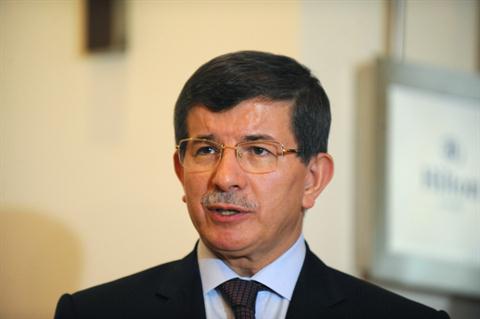
By Ahmed Tharwat
“He that hath a beard is more than a youth, and he that hath no beard is less than a man.”
― William Shakespeare, Much Ado About Nothing
Facial hair in Islam is complicated, and the politics of wearing a beard brings lots of heated debate and political wrangling. Besides the religious and Shari’a one, the beard-wearing debate also has important cultural components to it, which may entangle and complicate the religious one.
The Arab Spring, the election of President Mohamed Morsi and the Muslim Brotherhood’s success in securing political power brought a new brand of Arab leaders to the public arena – men with beards. Arab military dictators don’t usually wear beards; they substitute big beards with big black glasses. Some like Anwar El-Sadat and now Al-Sisi shave their beards, while letting their praying-mark (Zebeebah) grow. Other Arab dictators wore moustaches as a sign of vitality and masculinity. This look was popularised by Saddam Hussein in Iraq, where almost every man has a moustache. Saudi kings came up with their own goatee beards. Yasser Arafat, of course, had a soft beard, but to most Westerners, he simply seemed to be unshaven.
Beards come in different shapes, length and styles. They not only signifying different religious identities, but also have socioeconomic implications that may be confusing for untrained Western eyes that are only exposed to terrorists with beards. Yet many terrorists don’t have beards. None of the 19 hijackers of 9/11 had a beard. Right after the assassination of El-Sadat, and after Al-Sisi’s coup, lots of bearded men were randomly snatched out of their homes, put in jail and tortured. Their beards were sufficient evidence for incriminating them. Western media has focused on the attire of Muslim women, such as the hijab, but not enough on Arab men’s facial fashions. Growing a beard under Islam is mandatory for some men; for others it is a matter of identity and a choice, just like hijab is for women.
According to brother Burhan from Islamhelpline.com, during the Prophet’s time growing a beard was considered normal and natural for a man. “The Prophet only asked Muslims to trim the moustache (as the Amish do) to distinguish themselves from the pagans,” he said. He added, however, that the Prophet left the details and the up-keep to interpretation and religious zeal.
Western men grow beards mostly for convenience or sex appeal. Muslim men grow beards to indicate their devotion to their faith. Among the Salafis (orthodox Muslim) the longer and more unkempt the beard, the more traditional and pious is the man. The Brotherhood beard is more organised and controlled, which is a reflection of their organisational skills too. During the 25 January Revolution, Salafis and the Muslim Brotherhood had their one million man marches in Tahrir Square. Each of these times, the square was full of bearded men, confident, proud and jolly. Unlike the Salafis, the Brotherhood beard seemed shorter and trimmed. The Salafi beard is rough, thick long and out of control. At one of the fast food chain overlooking Tahrir Square, the place was full of young revolutionaries who were taking a break. Confident bearded men walked in and instead of asking for burgers or fries, they asked if they could do the pre-praying wash (wodoua). The military coup in Egypt toppled not only the first civilian elected president, but also toppled the first elected bearded president. During Morsi’s one-year tenure beards were worn by almost everyone – taxi drivers, shopkeepers, teachers, ministers, bank robbers. Even policemen and some military personnel demanded the right to wear beards.
Because of General-turned-President Al-Sisi’s heavy-handed treatment of the Brotherhood and his new jihad for ‘Moderate Islam’, lots of bearded Brotherhood men shaved or went underground away from the public eye. In ex-dictator Mubarak’s days, you didn’t notice bearded men that much; having a bearded friend in one’s group was a public eyesore, which could limit your access to only beard-friendly places. Private clubs and some restaurants started refusing to admit bearded customers, and even had signs to profess their beard policy. At Egyptian airports (as in Western airports), you would see bearded men undergoing a lengthy humiliating facial profiling from airport security.
You don’t have to be a Salafi or a Muslim Brother to have a beard – even men of the secular left can wear a beard, also possibly a political one, as popularised by Che Guevara. In Egypt, beards have played a vital political role in post-Arab Spring elections. As many Egyptians are illiterate, people did not vote based on the length of the candidate’s experience, but on the length of their beards. Officials used a pictorial ballot; and having a beard could give a candidate an edge. Egyptians voted heavily for bearded candidates, and Muslim Brotherhood and Salafi candidates dominated. In hindsight, the problem with Morsi and his Brotherhood clan was that they paid more attention managing their beards than managing the country’s affairs.
Ahmed Tharwat is host and producer of the Arab American TV show Belahdan (with open Arms), a weekly talk show that airs on MN Public TV. He blogs at Notes From America www.ahmediatv.com. Follow him at Facebook, Twitter and YouTube: ahmediatv



